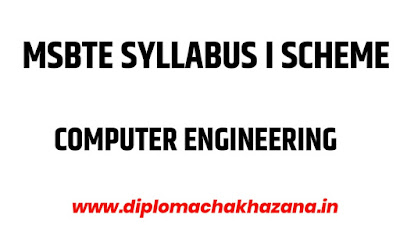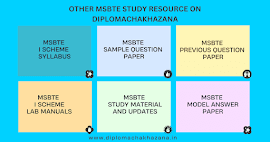Id 151
Question Parent:child is________
A base:derived
B derived:driven
C child:super
D subclass:superclass
Answer A
Marks 1
Unit II
Id 152
Question What is the syntax of inheritance of a class ?
A Class class _name
B Class name:access specifier
C Class name:access specifier class name
D none of these
Answer C
Marks 1
Unit II
Id 153
Question If an attribute is private then which methods have access to it?
A Only static methods in the same class
B Only the methods defined in that class
C Only the methods of the same package
D none of these
Answer B
Marks 1
Unit II
Id 154
Question Which of the following advantage cannot be achieved by using multiple inheritance?
A polymorphism
B dynamic binding
C both a&b
D none of these
Answer C
Marks 1
Unit II
Id 155
Question Which of the symbol used to create multiple inheritance ?
A Dot
B Comma
C Hash #
D Dollar
Answer B
Marks 1
Unit II
Id 156
Question Using multiple inheritance
A there can be virtual class
B it can not be include virtual class
C the base classes must have only default constructor
D none of theseAnswer A
Marks 1
Unit II
Id 157
Question The______member function is declared in base class but redefined in derived class
A class
B overloaded
C operator
D virtual
Answer D
Marks 1
Unit II
Id 158
Question In public inheritance ______
A All the members of base class are inherited and are made public
B Members of base class that are not private are inherited and retain their access type
C All the members of base class are inherited and retain their access type
D Only public members of base class are inherited and they remain public
Answer C
Marks 1
Unit II
Id 159
Question If class C is derived class of class B and class B is a derived class of A. If we instantiate
class B object then the first constructor called belongs to class
A A
B B
C can be A or B
D one cannot achieve such inheritance
Answer A
Marks 1
Unit II
Id 160
Question When the object of derived class expire, first the _______ is invoked followed by the
________.
A derived class constructor, base class destructor
B derived class destructor , base class destructor
C base class destructor , derived class destructor
D none of these
Answer B
Marks 1
Unit II
Id 161
Question If class A inherits from class B then B is called ________ ans A is called ________ of B.
A superclass and subclass
B subclass and superclass
C subclass and child class
D superclass and parent class
Answer A
Marks 1
Unit II
Id 162
Question What does derived class does not inherit from the base class _______.
A constructor and destructor
B operator=() members
C friends
D all of these
Answer D
Marks 1
Unit II
Id 163
Question Which constructor will initialise the base class data member ?
A Base class
B Derived class
C Derived derived class
D None of these
Answer A
Marks 1
Unit II
Id 164
Question If class A is a friend class of class B, if class B is friend class of class C then_______
A class C is friend class of
B class A is friend class of
C class A and class C do not have any friendship relation.
D none of these
Answer C
Marks 1
Unit II
Id 165
Question _________ class is tightly coupled with other class.
A friend
B virtual
C abstract
D none of theseAnswer A
Marks 1
Unit II
Id 166
Question The keyword friend is used in ___________.
A the class allowing access to another class
B the private section of a class
C the public section of a class
D all of these
Answer D
Marks 1
Unit II
Id 167
Question Class Test:public A, public B is an example of multiple inheritance.
A False
B True
C
D
Answer B
Marks 1
Unit II
Id 168
Question Which of the following interface determines how your program will be used by other
program?
A Public
B Private
C Protected
D None of these
Answer A
Marks 1
Unit II
Id 169
Question When base class pointer points to derived class object___________
A it can access only base class members
B it can access only derived class members
C both base class &derived class members
D None of these
Answer A
Marks 1
Unit II
Id 170
Question The base class will offer_____
A more specific object than the derived class
B more generalized version of its derived class
C empty templates of its derived class
D none of these
Answer B
Marks 1
Unit II
Id 171
Question In my program I have overloaded TEST::operator+ and TEST::operator= What is the
effect on TEST::operator+= ?
A The TEST::operator+= will be automatically overloaded .first TEST::operator+ will get
overloaded and then TEST::operator=
B The TEST::operator+= will be automatically overloaded .first TEST::operator= will
get overloaded and then TEST::operator+
C TEST::operator+= will made invalid
D There will be no effect because all three are independent
Answer D
Marks 1
Unit II
Id 172
Question What will happen on execution of the following code ?
Class base
{
};class derived: protected base
{
};
A It will not compile as the class body of the base class is not defined
B It will not compile as the class body of the derived class is not defined
C It will compile successfully
D The compilation of above code is dependent upon the type of data provided to it
Answer C
Marks 1
Unit II
Id 173
Question The base class will offer_____
A more specific object than the derived class
B more generalized version of its derived class
C empty templates of its derived class
D none of these
Answer B
Marks 1
Unit II
Id 174
Question The hybrid inheritance is _____
A multiple inheritance
B multilevel inheritance
C multipath inheritance
D both a &c
Answer D
Marks 1
Unit II
Id 175
Question Ho
w many types of inheritance are there
A 1
B 2
C 4
D 5
Answer D
Marks 1
Unit II
Id 176
Question Choose the correct option
A a) a constructor can not be called explicitly
B b) a destructor is not inherited
C c) constructor can not be inherited
D d) All of these
Answer D
Marks 1
Unit II
Id 177
Question Suppose class derived is derived from a class Base. Both the classes contain the
Function name display() that take no argument. What will be the statement in the class
derived which will called the display function of base class
A Display()
B Base:display()
C Base ::display()
D Can make such a cell
Answer C
Marks 1
Unit II
Id 178
Question Suppose class derived is derived from a class Base privately. The object of class Derived is located in main() can access_______.
A public members of base
B private member of base
C protected members of base
D public members of derived
Answer D
Marks 1
Unit II
Id 179
Question Multiple inheritance causes for a derived class to have ___members.
A ambiguous
B public
C private
D protected
Answer A
Marks 1
Unit II
Id 180
Question What will be the first line of specifier for the class tier, wheel &rubber. Make use of
public rubber
A Class Tier:public wheel, public rubber
B Class wheel:public tier, public rubber
C Class rubber:public tier, public wheel
D none of these
Answer A
Marks 1
Unit II
Id 181
Question Which is the correct class defination for class C ,Which inherits from A &B classes
A Class C:A,B
B Class C::A,B
C Class C:public A,public B
D Class C:: public A,Public B
Answer C
Marks 1
Unit II
Id 182
Question The ability of function or operator to act in different ways on different data type is
called___________
A inheritance
B polymorphism
C encapsulationD none of these
Answer B
Marks 1
Unit II
Id 183
Question _____class that declares or inherits a virtual function.
A Encapsulation data
B Inherited class
C Polymorphic class
D none of these
Answer C
Marks 1
Unit II
Id 184
Question Choose the correct option.
A A base class may have more then one derived class
B Derived class may have more than one derived class
C Both a &b
D Neither a nor b
Answer C
Marks 1
Unit II
Id 185
Question reusability is provided by which feature of c++
A polymorphisms
B abstraction
C derivation
D none of the above
Answer C
Marks 1
Unit II
Id 186
Question What types of derivations are supported by c++?
A single
B multiple
C multilevel
D all of the above
Answer D
Marks 1
Unit I








0 Comments
Please feel free to comment. Being diploma students We are always ready to help diploma Students